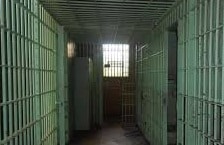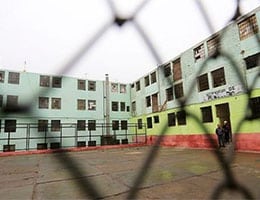 The concept of penitentiary is used to refer to what is linked to a penitentiary : the place where prisoners are locked up . The term is used to form various expressions.
The concept of penitentiary is used to refer to what is linked to a penitentiary : the place where prisoners are locked up . The term is used to form various expressions.
Penitentiary law , in this framework, is the branch of law focused on the application of penalties that deprive convicted persons of rights, especially freedom. The penitentiary system , meanwhile, is made up of the institutions that are responsible for establishing criminal punishments and guaranteeing compliance with the punishments.
The main penitentiary institution is the prison , jail or penitentiary . These establishments may have different characteristics. The prison regime is one that regulates life inside a space of this type.
Take the case of Mexico . The Federal Penitentiary System is an institution that depends on the national State, whose function is to administer and manage penitentiary establishments. Its objectives include collaborating with public safety, deterring crime and minimizing the recidivism rate.
This last concept, recidivism , is one of the most delicate in the field of the penitentiary system, since every time an ex-convict commits a crime again and forces - so to speak - the authorities to arrest him and lock him in jail. , in some way we can affirm that it throws away all the Government's efforts to reform it and guarantee the security of the nation.
In this sense we can begin to mentally develop a prison system to understand where it fails when it leads prisoners to reoffend. Firstly there is the deprivation of liberty , an element common to all that has generated and continues to generate controversy but that most people accept normally: if someone commits a sufficiently serious crime , Justice has the right to lock him up in prison. for a time that is established by assessing a series of specific issues based on current Law.
 This may seem ideal for victims, who feel protected by their authorities when they catch and imprison their attackers , but the latter also have rights from the government's point of view, and they are not always enforced behind bars. Spending months or years without being able to leave a building in which we are nothing more than numbers associated with a crime, sharing our small space with people who have perhaps committed more terrible acts, eating and sleeping poorly, suffering ridicule and abuse by part of armed officers and enduring poor hygiene is not exactly the description of "reform."
This may seem ideal for victims, who feel protected by their authorities when they catch and imprison their attackers , but the latter also have rights from the government's point of view, and they are not always enforced behind bars. Spending months or years without being able to leave a building in which we are nothing more than numbers associated with a crime, sharing our small space with people who have perhaps committed more terrible acts, eating and sleeping poorly, suffering ridicule and abuse by part of armed officers and enduring poor hygiene is not exactly the description of "reform."
Of course, all prison systems are not the same; The problem is that there are many that are infinitely worse. While in some advanced countries they strive to find the balance between serving their sentences and access to the tools necessary to lead a better life once they are released, in the majority prisoners go through difficult experiences to digest, which no one could desire not even as a sociological experiment, and when they finally leave prison they are not prepared to make good decisions.
In several countries, someone who works in the prison system is called a penitentiary. That is why the guards who monitor prisoners and control security in the prison are known as prison guards , prison officers or simply penitentiaries .
The term penitentiary also appears in the field of religion . The priest who dedicates himself to the confession of penitents in a church, for example, is described as a penitentiary. The person who presides over the Court of the Apostolic Penitentiary is also known as the penitentiary or major penitentiary .
